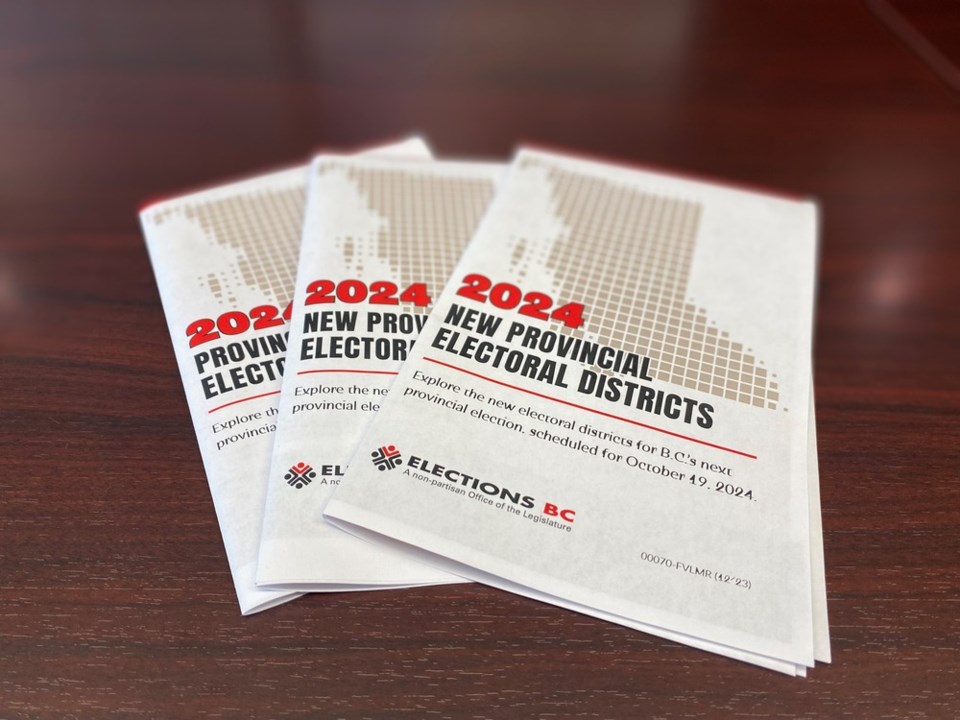Of the many surprising moves made so far in the 2024 B.C. election, one of the most perplexing has been the BC NDP’s decision to haul the independent agency overseeing our electoral process into court, to try and reverse its non-partisan decisions.
It’s an attack most political observers didn’t see coming. How could a party that’s been in government seven years, who is railing against the importation of American-style politics where the very legitimacy of the voting process is under attack, possibly think it was a good idea to challenge the independent judgement of Elections BC mid-campaign?
Yet here we are, with the New Democratic Party of British Columbia v the Chief Electoral Officer on the court docket in B.C. Supreme Court, 12 days before election day.
At issue is the name John Rustad’s BC Conservative party is using on election ballots. It’s not BC Conservatives. Or Conservative Party of BC. Instead, it’s just: Conservative Party.
“He's pretending to be part of the federal Conservative party,” said NDP leader David Eby. “He's not.
“He's misleading people, and he needs to be honest about who he is, which party he's running with, what their positions are (and) their goal to increase people's costs and advance conspiracy theories.”
B.C.’s Election Act largely allows parties to choose whatever ballot name they want, as long as it’s not deliberately confusing.
The same name, Conservative Party, was used in the two 2023 by-election races, both won by New Democrat candidates. The NDP didn’t seem to care then, because the party had victory in the bag. But now, in what polls suggest is a near-tie election, with the real potential the party might lose on the table, New Democrats are outraged.
Chief Electoral Officer Anton Boegman reviewed the BC NDP’s complaint and concluded the Conservative name is not confusing. The NDP, rather than respecting the judgement of the legislative officer overseeing public confidence in the electoral process, who was appointed in a unanimous vote by all parties, filed court action to accuse Boegman of violating the charter rights of voters.
“The CPBC appears to hope that voters will vote for it in the upcoming election, thinking they are voting for the federal CPC,” the NDP wrote in its court petition.
“The BC NDP’s voter outreach efforts regularly put it in touch with voters who tell the BC NDP that they intend to vote for Pierre Poilievre in the upcoming election, or that they are voting based on a desire to replace Justin Trudeau.…
“A vote cast in the provincial election marked ‘Pierre Poilievre’ will be rejected and not counted. It’s likely that many voters, lacking the information that the CPBC and the CPC are separate entities, will unintentionally spoil their ballots in this manner.”
Putting aside the fact that ballots spoiled with the Poilievre name would actually benefit the NDP vote count, the core argument New Democrats are making is voter intelligence is so low that people confuse provincial elections (and leaders) with federal ones.
Maybe. But the BC NDP undermined that very argument two days after filing the court challenge, when it invited federal NDP leader Jagmeet Singh out to knock on doors for BC NDP Burnaby East candidate Reah Arora.
“Amazing canvassing @ SFU today with Jagmeet Singh,” Arora tweeted. “So much great energy.”
Singh has campaigned for the BC NDP in every election. The federal and provincial parties are a joint entity, with provincial membership automatically registering you federally. Eby and Singh regularly speak at each other’s events.
Contrast that with the B.C. and federal Conservatives, which are unaffiliated parties. Poilievre hasn’t even publicly endorsed Rustad in the B.C. election.
Which one of those scenarios seems more confusing for voters? Probably not the one being challenged in court.
“I find it rather amusing that that's what the NDP is spending their time on,” said Rustad.
“They can't defend any of the issues that they've created around this province, and that's the way they've decided to spend their time, is to fight this in court.”
The NDP taking Elections BC to court in the middle of a tight election feels equal parts desperate, and crass. What’s next, suggesting the new electronic tabulators are inaccurate?
The agency itself, which opposes the court action, says all the ballots in the election have already been printed with the name Conservative Party, and 13,000 votes have already been cast in person and by mail.
“Apart from the Election Act’s requirements, a party’s name is a political decision made by the party,” said Elections BC spokesperson Andrew Watson.
“As such, it would be inappropriate for a non-partisan office like Elections BC to review party names outside the parameters established by the act.”
In the do-anything-to-win political playbook currently in play by both parties in this election, one thing should be off the table: Going after Elections BC and the public’s confidence in its non-partisan decision-making that oversees elections.
New Democrats should respect the independent agency’s judgement and withdraw the court challenge.
Rob Shaw has spent more than 16 years covering B.C. politics, now reporting for CHEK News and writing for Glacier Media. He is the co-author of the national bestselling book A Matter of Confidence, host of the weekly podcast Political Capital, and a regular guest on CBC Radio.

.jpg;w=120;h=80;mode=crop)

